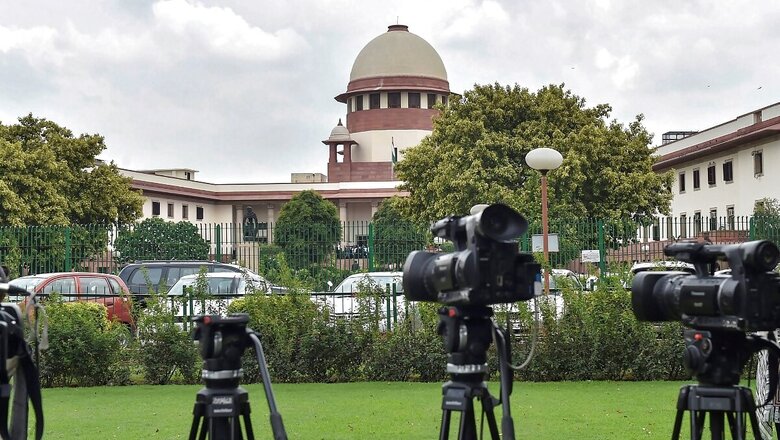
views
Homosexuality or same-sex relationships were “decriminalised” by the Supreme Court in 2018. Any romantic relationship between different sexualities is permissible and legal. The LGBTQ community won a long, hard-fought battle at the Supreme Court after facing various disappointments in the legal battle. The community has the protection of the law to live their life as they please.
Various members of the community have petitioned the Supreme Court, challenging different laws that define “marriage” as a union between a man and a woman. The LGBTQ community members demand that their relationship should be able to get the status of marriage, if they so desire. Ancillary rights of adoption, inheritance, co-ownership and many others shall flow directly if the court grants legal recognition to same-sex marriage.
About 30 countries across the world recognise same-sex marriages. None of those countries have a complex scheme of personal laws that govern the family law sphere. None of those countries have a cultural diversity as complex as India. Most of these countries that recognise gay marriages already have what we aspire for in India— the Uniform Civil Code.
The challenge at the Supreme Court is primarily to the following laws— Special Marriage Act, Hindu Marriage Act, Citizenship Act, and the Foreign Marriage Act. The petitions demand that various provisions be interpreted so that same-sex marriages can be given legal recognition. Simply put, the LGBTQ community demands that the definition of marriage should do away with the heterosexual assumption of a union between a man and a woman. The concept of marriage should be gender-neutral. The task would have been easily accomplished if India had a settled Uniform Civil Code.
The complex scheme of patchy codified and uncodified personal laws makes it extremely difficult for all these statutory and customary laws to be reconciled.
Another argument opposing gay marriage cites Indian culture and ethos which do not give sanction to same-sex marriages. But arguably, culture is a fluid and evolving concept. The absence of religious or cultural backing to same-sex marriage is not an argument rooted in law. The argument cannot stand the scrutiny of the courts on merits. The argument for gay civil rights is rooted in equity and dignity that the law must protect each individual, irrespective of their sexuality.
There can be no definite answer to whether a country or a society is ready for some radical change. There is no perfect time. If the reform is sought by an aggrieved community, law and equity must protect it. There is no way the complicated scheme of personal laws can be amended. More importantly, personal laws cannot be struck down or changed because they violate fundamental rights. Personal laws enjoy special protection.
The only way for courts is to make changes in the reading of the Special Marriage Act and accommodate same-sex marriages. Such recognition by the courts shall open an unending battle for recognition and grant of various civil rights. Rights pertaining to adoption, inheritance, divorce, maintenance, custody of children, and protection from domestic violence would be affected. The recognition of gay marriage shall entail dealing with all these perplexing questions. Interestingly, another bench in the Supreme Court shall decide on criminalisation of marital rape in India. This shall also mean that at some point sexual assault must be made gender-neutral. Are we ready for these changes?
“Society” or the “societal norms” are much loathed. We like to bash this vague amorphous cluster of people for being regressive, archaic, and resistant to change. But family is the foundation of this society and when fundamental norms of family undergo radical change, it’s bound to create tremors. The same society is crucial in raising children, exercising social and cultural rights, and much more. At this point, there is a complete absence of any informed conversations and debates on gay marriages. We don’t even have a common civil code. Even legislatively the issue has not had much attention from a law commission or any expert panel. It is pertinent that an expert body or a group undertakes the task of studying the implications of legal recognition of same-sex marriage, before courts decide to make this sweeping reform or change.
Till we have totally understood the ramifications of recognition of same-sex marriage, and how it will survive adjacent to the scheme of personal laws, the reform shall be a knee-jerk reaction and not a well-thought responsive change.
Decriminalisation of homosexuality was just about the sexual rights of individuals. Recognition of gay marriages will be about individuals, families, and society. The issue is not one of absolute individual rights, it’s an issue where an institution of codependency is sought to be altered in a radical way. A diverse complex society and legal framework like India needs thorough thinking before making this change.
Read all the Latest India News here


















Comments
0 comment